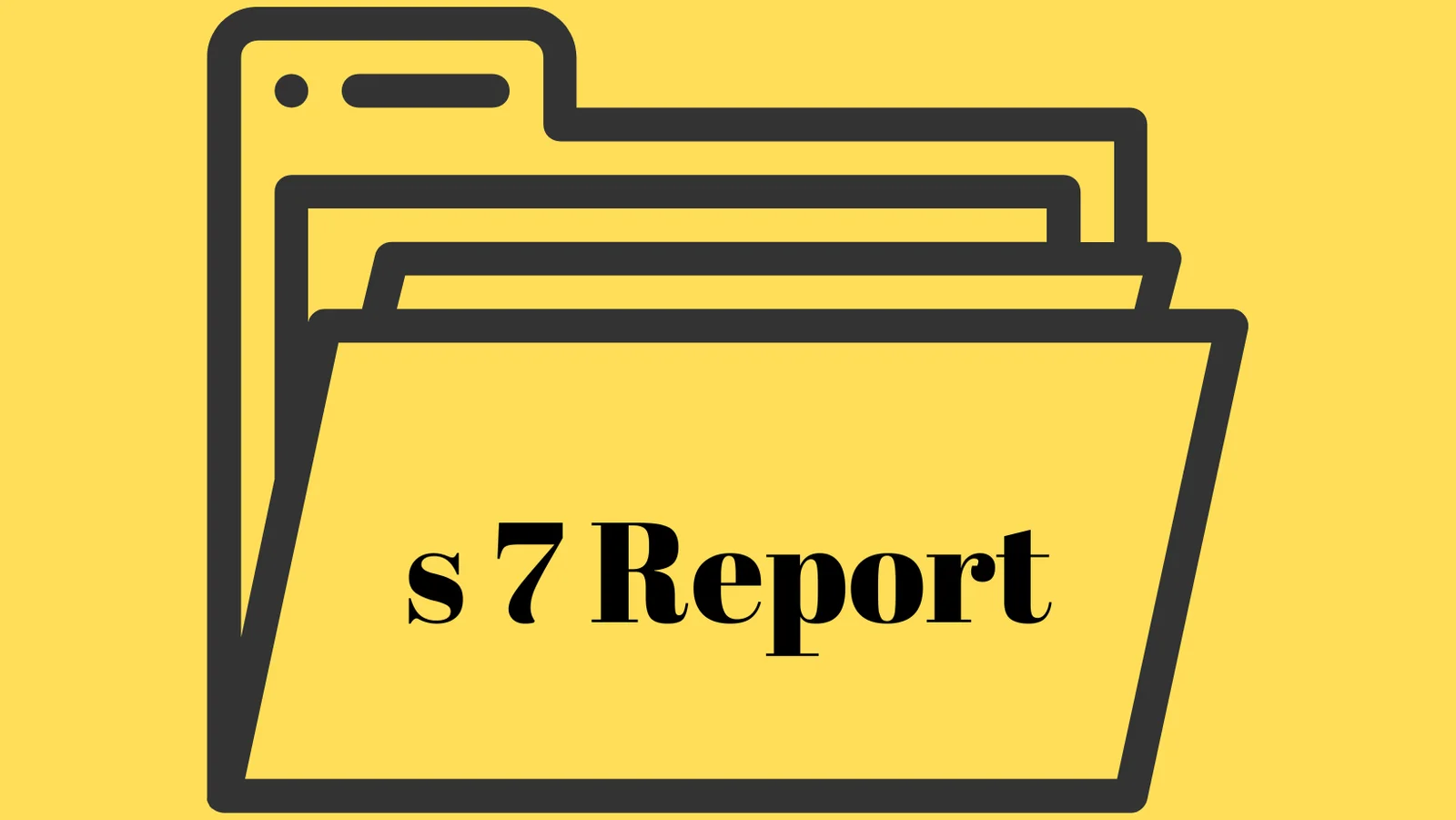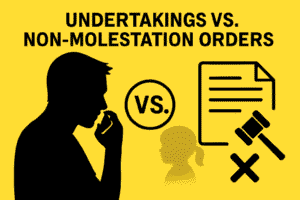Last Updated: 5 September 2025
When you’re in the middle of family court proceedings, hearing the judge order a “Section 7 report” can feel like the moment your whole case hangs in the balance. It’s a term that can be incredibly daunting, often marking the start of what many dads describe as the scariest part of the process. You are likely feeling anxious, overwhelmed, and worried about how an external investigation will impact your children’s future.
Understanding what a Section 7 report is, and what it entails, is the first step to moving from a position of crisis to one of informed control. This guide will provide a clear, empathetic, and strategic roadmap, explaining the purpose of the report, the process from start to finish, and how you can approach it with confidence to ensure your child’s best interests are accurately represented.
Key Takeaways
- A Section 7 Report is a Court-Ordered Welfare Investigation: Its primary purpose is to provide a judge with detailed, independent information about your child’s welfare to help them make a final decision on child arrangements.
- The Report is Based on the Welfare Checklist: The entire investigation, conducted by a CAFCASS officer, must be structured around the seven points of the Welfare Checklist.
- Preparation is Your Best Strategy: A strategic approach involves being child-focused, documenting your parenting, and presenting your case calmly and objectively to the reporting officer.
- You Can Challenge the Recommendations: While the report’s recommendations are highly influential, you have the right to challenge them. Fathers often benefit from submitting a formal Position Statement to correct inaccuracies or disagree with the final opinion.
Worried about your upcoming Section 7 report? WhatsApp us now for expert guidance before it’s too late.
Jump To
- Why Has a Section 7 Report Been Ordered?
- A Deep Dive: The Welfare Checklist
- At a Glance: The Section 7 Report Timeline
- A Real-World Example: Preparing for Your Interview
- Common Mistakes That Can Harm Your Report
- Frequently Asked Questions (FAQs)
- Navigate the Report with Clarity and Confidence
Why Has a Section 7 Report Been Ordered?
A Section 7 report is prepared under Section 7 of the Children Act 1989. It is typically prepared by a Family Court Adviser (FCA) from CAFCASS who acts as the “eyes and ears” of the court. As a consultant who used to write these reports for CAFCASS, I know that they are not ordered in every case. A judge will request one when they need more detailed information, especially when:
- Child Welfare Concerns Arise: There are allegations of domestic abuse, neglect, or other safety concerns that require a professional assessment.
- Family Dynamics are Complex: There is significant conflict between parents, or a child has special needs that require expert analysis.
- A Child’s Wishes Are Unclear: It is difficult to understand what a child truly wants, especially if there are concerns they are being influenced.
- Previous Orders Haven’t Worked: Existing Child Arrangements Orders have broken down, and the court needs to understand why.
A Deep Dive: The Welfare Checklist
The entire Section 7 report is structured around the Welfare Checklist. This is a legal framework from the Children Act 1989 that a CAFCASS officer must use to analyze your family’s situation. Understanding its seven points is the key to presenting your case strategically.
Official Definition
The Welfare Checklist is a list of seven statutory criteria that the court and CAFCASS must consider when making any decision with respect to a child’s upbringing. The child’s welfare is the court’s ‘paramount consideration’.
Breakdown of the 7 Points
- The child’s ascertainable wishes and feelings: You need to show that you listen to your child’s feelings and can see the situation from their perspective, without pressuring them to “choose a side”.
- The child’s physical, emotional, and educational needs: Be prepared to demonstrate your practical ability to meet all of your child’s day-to-day needs.
- The likely effect on the child of any change in circumstances: If you are proposing a change, you must clearly explain how it benefits your child and how any disruption will be managed.
- The child’s age, sex, background, and any other relevant characteristics: Show that you understand your child’s specific needs related to their age, culture, religion, or any health conditions.
- Any harm the child has suffered or is at risk of suffering: Be prepared to calmly and factually address any allegations of harm made in a fact-finding hearing or otherwise.
- The capability of each of the parents to meet the child’s needs: This is assessed during interviews and home visits. You must demonstrate practical parenting skills and a willingness to co-parent positively.
- The range of powers available to the court: This confirms that the judge will make a final, legally binding decision based on all the evidence, including the CAFCASS recommendations.
Not sure how to show you meet the Welfare Checklist? Message us on WhatsApp and we’ll walk you through it step by step.
A Real-World Scenario
During a Section 7 interview, the CAFCASS officer asks a father how he would support the child’s relationship with their mother. Instead of criticising her, the father explains that he understands his child needs both parents. He provides a practical example: “I always speak positively about their mum. For her birthday last month, I helped our daughter pick out a card and a present to give to her.” This answer directly addresses the officer’s concern about his co-parenting capability.
Common Pitfalls
- Treating it like a police interrogation: The interview is an assessment, not an accusation. A defensive or hostile attitude is a major red flag.
- Focusing on the adult dispute: The officer is interested in your child’s experience, not your feelings about your ex.
- Not preparing properly: Failing to think through the seven points of the Welfare Checklist and how you meet each one is a missed opportunity.
At a Glance: The Section 7 Report Timeline
The process typically takes 12-16 weeks. Understanding the stages can help reduce anxiety.
| Stage | Timescale | Key Activities |
|---|---|---|
| Court Order | Week 1 | Judge requests the report at a hearing, often the FHDRA, and sets a deadline. |
| Allocation | Weeks 2–3 | A CAFCASS officer (FCA) is assigned and makes initial contact with both parents. |
| Investigation | Weeks 4–12 | ✅ FCA interviews parents and child, conducts home visits, speaks to professionals (e.g., school). |
| Report Writing | Weeks 13–15 | FCA analyses all information against the Welfare Checklist and writes the report and recommendations. |
| Filing & Distribution | Week 16 | ❌ The final report is filed with the court and sent to both parents before the next hearing. |
Don’t wait 16 weeks to realise mistakes. WhatsApp us today and prepare properly from the start.
A Real-World Example: Preparing for Your Interview
Proper preparation can significantly influence your Section 7 report outcome. It is critical to stay child-focused, articulate your position clearly, and demonstrate cooperation.
Here are some tips on how to prepare for your interview:
- Be Child-Focused: Frame everything around what is best for your child, not personal grievances. Talk about “our children” and the impact of situations on them, rather than your own “rights”.
- Document Your Parenting: Keep records of your involvement in your child’s life, such as school events, medical appointments, and activities.
- Prepare Key Information: Have details ready about your child’s routine, preferences, friendships, and any concerns about their education or health.
- Address Concerns Head-On: If there are allegations against you, prepare calm, factual responses. If you have made mistakes, a strategic approach is to acknowledge them and explain how you have addressed the issues.
🧠 Insider Insight from Lach: “I used to write these reports for CAFCASS. I know exactly how recommendations are shaped, what red flags officers look for, and what the court needs to see. The biggest mistake dads make is focusing on fighting their ex. The officer isn’t interested in that. They want to see if you can put your child’s needs first. Every question they ask, every observation they make, is through the lens of the Welfare Checklist. If you prepare for the interview with that checklist as your guide, you’re speaking their language.”
Common Mistakes That Can Harm Your Report
- Being hostile to the CAFCASS officer: They are not your enemy; they are an officer of the court. Hostility will be noted in the report.
- Criticising your ex-partner excessively: While you must address allegations, constant criticism will make you appear bitter and not child-focused.
- Coaching your child: Any attempt to influence what your child tells the CAFCASS officer is a serious red flag and will likely be discovered.
- Not submitting a response: If you disagree with the report, it’s vital to say so in a formal position statement. If you stay silent, the court will assume you agree with it.
Avoid these mistakes with professional guidance. WhatsApp us now for tailored Section 7 preparation.
Frequently Asked Questions (FAQs)
Fathers often have the same urgent questions when facing a Section 7 report – here are the answers you need most.
How serious is a Section 7 report?
It is very serious. A judge’s final decision will be heavily influenced by the recommendations in the report, especially if there are any safeguarding concerns.
What if I disagree with what CAFCASS writes about me?
You have the right to respond. A strategic approach is to submit a formal response statement to the court that factually corrects any inaccuracies and clearly explains why you disagree with the recommendations.
How long does a Section 7 report take?
It typically takes between 12 to 16 weeks from the date the court orders it. However, this can vary depending on the workload of the local CAFCASS office.
Can a McKenzie Friend help with a Section 7 report?
Yes. While a McKenzie Friend cannot speak for you in interviews, they are invaluable in helping you prepare for them, review the final report for inaccuracies, and draft your formal response to the court.
Do judges always follow CAFCASS recommendations?
Not always, but the recommendations carry significant weight. A judge must provide clear, written reasons if they decide to make an order that goes against the report’s recommendations.
Do CAFCASS check social media?
Yes, they can. Any public social media posts that demonstrate hostility, risky behaviour, or poor judgment can be considered by the officer if they are relevant to safeguarding your child.
Will CAFCASS do a home visit for a Section 7 report?
It is very likely, especially if there are any concerns about the home environment or if it’s one of the first times CAFCASS has been involved with your family.
How do I prepare for a CAFCASS interview?
The best preparation is to thoroughly understand the seven points of the Welfare Checklist and have clear, real-world examples of how you meet your child’s needs under each of those headings.
What happens after the Section 7 report is filed?
Both parents will be given time to read the report and prepare a response statement. The court will then list another hearing (often a Dispute Resolution Appointment) to discuss the report’s findings and decide on the next steps.
Can I question the CAFCASS officer in court?
Yes. The CAFCASS officer who wrote the report usually attends the next significant hearing. If you have challenged their report in your statement, the judge may allow you to cross-examine them on their findings.
Receiving a report that you feel is unjust can be a significant setback, but it’s important to know that you have a voice in this process. With our fixed-fee support, we can help you analyse the report and draft a response that gives you the best possible chance of being heard.
Navigate the Report with Clarity and Confidence
Don’t let fear or confusion dictate your next move. A Section 7 report is a critical stage in your case, and your input is vital. A strategic, well-prepared, and child-focused approach can ensure the final report is a fair and accurate reflection of your parenting.
At Dads Consultancy, we provide the specialised, expert support to help you navigate this process. Our founder is a former CAFCASS officer who has written these reports himself. We know what’s required. We can help you with:
- Navigating Section 7 Reports: We provide intensive preparation for your interview and expert guidance on how to respond to the final report, line by line.
- Handling the CAFCASS Call: We prepare you for the initial safeguarding call, setting the right tone from the very start.
- Drafting Powerful Position Statements: We guide you in writing a compelling response that challenges inaccuracies and reinforces your positive case.
- Making Your Application: If you are at the start of your journey, we ensure your C100 form is completed flawlessly.
- Responding to Allegations: If the report is based on false allegations, we help you structure factual, evidence-based responses.
👉 WhatsApp us today for a strategic consultation, and let’s build a clear plan to ensure your voice is heard loud and clear.
🧠 Insider Insight: Lach, our founder, is a qualified social worker who used to write Section 7 reports for CAFCASS — the very reports that influence court outcomes. Now he helps dads respond to them. Learn more about Lach’s background.




